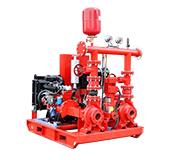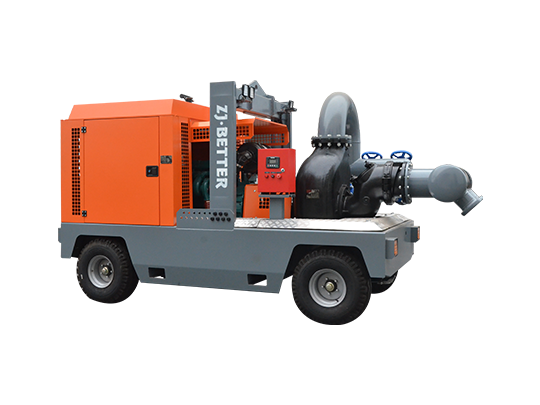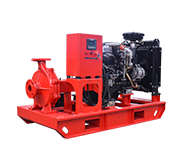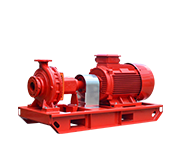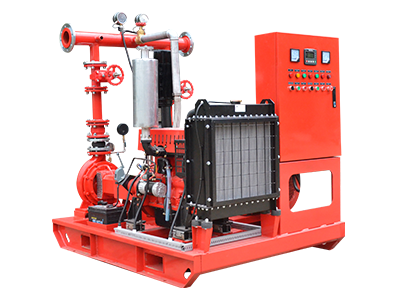- Fire Pump System
-
- UL-Listed Fire Pump SetEDJ End Suction Fire Pump SetEDJ Fire Pump SetEJ Small Flow Fire Pump SetFire Pump PackagesContainerized fire pump setDiesel Fire Pump SetED Small fire pump setElectric Jockey Fire Pump SetFire Pump Set with Jockey PumpFire Pump SystemSplit Case Fire Pump SetMutistage EDJ Fire Pump SetDiesel Fire Pump Set with Jockey PumpFire Fighting Pump SystemElectric Diesel Jockey Fire Pump SetFire Fighting Pump Set with Jockey PumpSmall Capacity Electric Fire Pump SetDJ Fire Pump Set with Jockey PumpEJ Fire Pump SetED Fire Pump Set (Electric+Diesel pump)Diesel Engine Fire Pump SetDiesel Fire Jockey PumpSmall Fire Pump SetEDJ Fire Pump SystemFire Water Pump SetFire Pump AssemblyDJ Small Flow Fire Pump SetCummins Engine Fire Pump Set
- Mobile Pump Unit
-
- Split Case Series Mobile Pump TruckSelf Priming Series Mobile Pump TruckCentrifugal diesel driven dewatering pumps open frame trailerFlow-mixing Mobile Pump TruckFlow-mixing Mobile Pump TruckManure Pump TruckP12 modle mobile Pump truckP10 Modle Mobile Pump Truck1000m³Self Priming Series Mobile Pump TruckLarge Flow Non-Clogging Mobile Fire Pump TrailerTrailer Mounted Fire PumpFire Emergency Mobile Pump TruckDiesel Engine Emergency Mobile Trailer Pump
- Diesel Fire Pump
-
- UL Listed Diesel End Suction Fire PumpXBC-S Diesel Split Case Fire PumpXBC-IS Diesel End Suction Fire PumpXBC-D Diesel Multistage Fire PumpVertical Turbine Diesel Engine Fire PumpDiesel Engine Single-Stage Centrifugal PumpXBC-IS Diesel End Suction Fire Fighting PumpXBC-S Diesel Engine Split Case Fire PumpDiesel Engine End Suction Fire PumpXBC-IS Diesel End Suction Fire PumpsZWC Diesel Engine Self Priming Pump for IrrigationDiesel Engine End Suction Fire Fighting PumpXBC-S Heat Exchange Diesel End Suction Fire PumpXBC-XA Diesel Engine End Suction Fire PumpXBC-IS Diesel Engine Fire PumpDiesel Engine End Suction Fire PumpXBC-IS Diesel Engine End Suction Fire PumpXBC-ISO Diesel Fire Fighting PumpPortable Fire PumpFire Booster Pump

Email: zjbetter@119pump.com
Tel:+86 15336708022(Gloria) +86 13306708055 (Ivy) +86 13357006058 (Serena) +86 13357022877 (Wendy) +86 17757009882(Kate)
Fax:0086-570-3010238
-
How to Choose the Right Fire Fighting Pump for Your Building?
Follow Installation Guidelines: Adhere to NFPA 20 standards. Hire licensed professionals to ensure compliance. Placement: Install the pump in a protected area, away from flooding risks and fire hazards. Ensure proper ventilation for diesel pumps. System Integration: Connect the pump to water supply lines and discharge piping. Test the system to confirm seamless operation. Inspection and Documentation: Have the installation inspected by fire authorities. Maintain clear documentation for future audits.
View more +
-
Fire Pump Package Set vs. Independent Fire Pumps: Which is Best for Large Installations?
Package Set: Pre-assembled for faster installation. Compact and integrated design. Independent Pumps: Flexible configurations for unique site needs. Ideal for phased upgrades.
View more +
-
Do Fire Pumps Require Fire-Resistant Housing?
Regulations: Compliance with NFPA standards. Reasons: Protect equipment in case of fire. Ensure operational continuity. Materials: Use fire-resistant steel or specialized enclosures.
View more +
-
What Are the Long-Term Cost Benefits of Diesel Fire Pumps?
Advantages: Lower operational costs in areas with unstable grids. Durability reduces frequent replacements. High resale value due to robust construction.
View more +
-
how-to-maintain-fire-pump-readiness-in-high-traffic-locations?
Best Practices: Daily visual checks. Weekly test runs for diesel pumps. Ensure debris-free water inlets. Focus: Quick-response repairs to minimize downtime.
View more +
-
Can Fire Pumps Be Used in High-Security Government Facilities?
Key Features: Robust security: Tamper-proof housing. Diesel options for power independence. UL-listed systems for compliance. Customization: Add monitoring for integration with secure facility systems.
View more +
-
Why is Accurate Pump Flow Calibration Important for Fire Safety?
Impact: Ensures the system delivers adequate water during emergencies. Calibration Techniques: Use flow meters and pressure gauges. Frequency: Annual calibration in line with NFPA 20 standards.
View more +
-
Which Fire Pumps Are Ideal for Mixed-Use Commercial Spaces?
Challenges: Varied water demand, noise limitations, and space constraints. Recommended Types: Electric fire pumps for low-noise operation. Diesel fire pumps for emergency backup power. Custom Solutions: Consider pump package sets for compact and integrated systems.
View more +
-
Are Diesel Fire Pumps More Efficient for Long-Duration Fire Protection?
Diesel fire pumps are often preferred for long-duration applications, especially in locations where power reliability is a concern. Diesel engines can run continuously as long as fuel is available, providing sustained performance for fire protection. However, diesel pumps require well-maintained fuel storage and battery charging systems to ensure they start reliably. For facilities where extended fire protection is crucial, diesel pumps offer a robust option, though regular inspections and fuel tests are critical for readiness.
View more +
-
What Are the Key Differences Between Electric and Diesel Fire Pumps?
Electric and diesel fire pumps each offer unique benefits: Power Source: Electric pumps are powered by a reliable power grid but may require backup power. Diesel pumps operate independently of the electrical grid, making them valuable in areas with inconsistent electricity. Installation & Maintenance: Electric pumps are easier to install and maintain, while diesel pumps need more maintenance, such as regular fuel checks. Startup Time: Electric pumps have faster startup times, while diesel pumps may experience a slight delay. Cost Efficiency: Electric pumps are generally more cost-efficient in the long term due to lower fuel and maintenance costs, though diesel pumps offer better durability in extreme conditions. Selecting between electric and diesel fire pumps depends on the facility
View more +
-
How to Plan Fire Pump Systems for High-Risk Industrial Facilities?
High-risk industrial facilities require specialized fire pump systems designed for quick response, reliability, and compliance with safety standards. Key steps in planning include: Risk Assessment: Understand fire hazards specific to the facility. Compliance with Standards: Choose UL-listed or FM-approved fire pumps and adhere to NFPA20 guidelines. Redundancy and Backup Systems: High-risk facilities often require multiple fire pumps or backup power sources to ensure continuous operation. Water Supply Consideration: Ensure reliable and adequate water supply through storage tanks or multiple water sources. Automatic Control Systems: Use advanced control systems to automatically activate fire pumps during emergencies. With these measures, high-risk facilities can achieve greater reliab
View more +
-
Can Fire Pumps Be Used for Both Water and Foam Systems?
Fire pumps are often associated with water-based fire suppression, but they can also be effectively used in foam systems, particularly in high-risk industries (e.g., oil and gas, chemical storage). Foam systems utilize a mixture of foam concentrate and water to create a more effective barrier against flammable substances. Fire pumps used in such systems must be compatible with foam agents, considering factors like resistance to corrosion and compatibility with piping materials. Proper calibration is essential to maintain the correct water-to-foam ratio. Planning for foam systems requires expertise to prevent any issues with foam expansion and delivery pressure.
View more +
-
What Are the Main Causes of Fire Pump Damage?
Elaborate on the causes of cavitation, such as air leaks in suction piping and low suction pressure, and how it erodes the impeller. Also, cover common installation issues like poor alignment and inadequate ventilation that can cause damage over time. Provide practical preventive steps, such as ensuring proper suction conditions and routine inspections of bearings and seals.
View more +
-
How to Prepare Fire Pump Systems for Cold-Weather Operations?
Provide a checklist for winterizing fire pumps, including draining and refilling cooling systems, insulating pump housings, and checking for exposed pipes that could freeze. Discuss the pros and cons of heat tracing cables versus heated enclosures, and recommend antifreeze types that are safe for use with fire pumps and do not compromise system integrity.
View more +
-
Can Fire Pumps Be Integrated with Existing Fire Alarm Systems?
Detail the technical aspects of integrating fire pumps with fire alarm panels, such as control wiring and pressure sensors. Outline the benefits of centralized monitoring, automatic alarms for low pressure or pump failure, and system tests, showing how integration can streamline emergency responses and simplify inspection compliance.
View more +
-
Why Is Fire Pump Performance Testing Critical for Compliance?
Explain different types of testing, including flow testing, pressure testing, and churn testing, and how each one evaluates pump performance under various conditions. Discuss the required testing intervals as per NFPA 25 and how testing data can be used to predict future maintenance needs, ensuring that pumps stay compliant with fire codes and ready for emergency situations.
View more +
-
Which Fire Pumps Are Ideal for Hotels and Resorts?
Cover the critical factors for hotel and resort fire pumps, such as quiet operation, space efficiency, and the need for aesthetic integration in luxury environments. Describe how package sets or slim-line electric pumps with sound attenuation features can be a solution, and explain how these systems meet hotel fire safety standards without disturbing guests.
View more +
-
Everything You Need to Know About Fire Pump Engine Maintenance
Dive deeper into the differences between electric and diesel engine maintenance requirements. For diesel engines, emphasize the importance of fuel quality, oil changes, and regular load testing. For electric engines, discuss electrical inspection protocols and monitoring for overheating. Also, suggest a maintenance schedule for both types and address common issues like carbon buildup in diesel engines and electrical wear in electric engines.
View more +
-
Can Fire Pumps Operate in Extremely Cold Temperatures?
Discuss modifications necessary for cold climates, such as heated enclosures, insulated pipes, and using antifreeze solutions. Highlight how cold weather can affect pump parts, seals, and batteries (for diesel pumps). Provide examples of common failure points, like frozen impellers, and preventative measures, especially for outdoor and exposed installations.
View more +
-
Differences Between Fire Pumps and Pressure Boosting Systems
Clarify that fire pumps are used exclusively for firefighting, with high power and capacity for emergency scenarios. Pressure boosting systems are for maintaining steady water pressure in domestic and commercial plumbing. Use real-world scenarios, like a commercial building with weak water pressure for daily operations but needing a robust pump for fire emergencies.
View more +
-
Are Diesel Fire Pumps the Best Option for High-Capacity Needs?
Diesel pumps offer a high power output, making them ideal for large facilities. However, highlight other considerations like maintenance requirements, fuel storage, and regulatory compliance for fuel handling. Compare alternatives, like electric pumps with generator backup, for areas where high capacity and minimal maintenance are key.
View more +
-
Do Fire Pumps Require Special Fireproofing?
Discuss NFPA 20 recommendations on fireproofing, especially for fire pumps located in high-risk areas where fires could reach the pump room. Explain fireproofing options like coatings, fire barriers, and heat-resistant enclosures that can shield critical components.
View more +
-
6 Essential Steps for Fire Pump System Commissioning
Walk through critical steps: verifying system components, pressure tests, performance tests, flow tests, NFPA compliance checks, and final inspection. Emphasize the importance of a thorough commissioning process for long-term reliability and compliance.
View more +
-
Everything You Need to Know About Fire Pump Flow Rates
Discuss how flow rate is influenced by the building size, water demand, and occupancy. Describe calculations for determining the minimum required flow rate, covering NFPA 20 guidelines for various building types. Use charts or graphs to help readers visualize flow rate needs across different types of facilities.
View more +
-
Which Fire Pumps Are Ideal for Research and Development Facilities?
R&D facilities often need flexible and reliable fire systems to accommodate evolving layouts and equipment. Talk about low-maintenance options, noise concerns, and customization for unique lab or testing spaces. Address considerations like protecting valuable research assets from fire damage.
View more +

